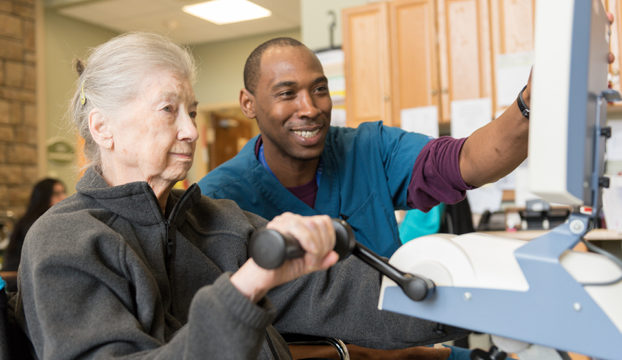The Crucial Impact of Resistance Training on Improving Recovery and Performance in Athletic Rehabilitation
The Crucial Impact of Resistance Training on Improving Recovery and Performance in Athletic Rehabilitation
Blog Article
Strength conditioning plays a vital role in athletic recovery, helping sportspeople recover from traumas and improve their overall capabilities. When an athlete sustains injured, their body requires period to recover. However, during this recovery phase, it is essential to maintain power and mobility to avoid further damages. Resistance training can be tailored to fit the requirements of each athlete, concentrating on specific muscular groups that may have been affected by the trauma. This targeted approach not only assists in rehabilitation but also prepares the athlete to come back to their sport more robust than before.
One of the main benefits of resistance training in recovery is its ability to improve muscle power and endurance. When muscular tissues are stronger, they can more effectively support articulations and reduce the risk of recurrence of injury. For example, an individual recovering from a leg injury can gain from exercises that fortify the quadriceps and back thigh muscles. These muscles play a crucial role in supporting the knee articulation. By including resistance training into their recovery program, individuals can regain their power more effectively and securely.
In addition to developing strength, strength training also enhances mobility and range of motion. Many traumas can lead to rigidity in the affected region, making it challenging for individuals to navigate freely. Resistance training workouts often involve extending and elongating the muscles, which can assist restore mobility. For example, adding resistance straps or weights into flexibility programs can improve the effectiveness of these workouts. As flexibility enhances, athletes can perform actions more efficiently, which is crucial for optimal performance in their sport.
Another important factor of resistance training in athletic recovery is its beneficial effect on mental health. Healing from an injury can be a challenging and frustrating process for individuals. Engaging in strength training can offer a feeling of accomplishment and boost self-esteem. As individuals see gains in their power and abilities, they may feel more driven to persist their recovery process. This mental boost can be just as crucial as the bodily advantages, as a optimistic mindset can lead to better results in rehabilitation.
Finally, resistance training can assist individuals move back to their activity more smoothly. Once they have recovered their power and flexibility, athletes must to rehearse sport-specific actions to guarantee they are ready for competition. Resistance training can be integrated with activity-specific exercises to create a comprehensive rehabilitation plan. This combination allows athletes to not only heal but also enhance their performance. By focusing on both rehabilitation and performance, resistance training becomes an essential instrument in the recovery process, assisting athletes return to their activity stronger and manual therapy in sports rehab more resilient.